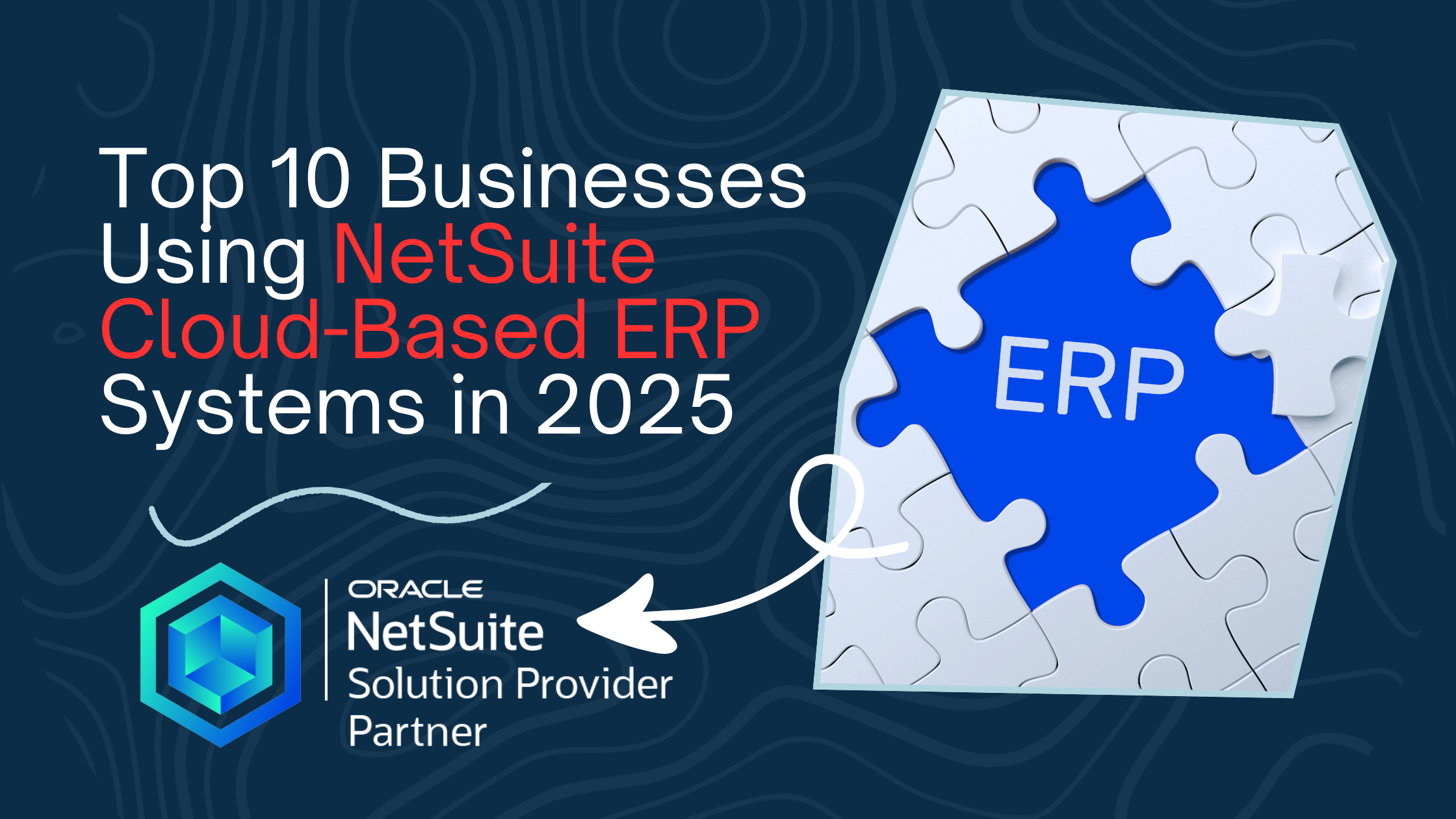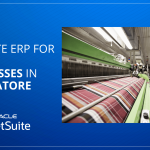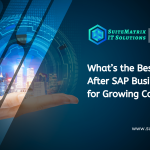As businesses continue to prioritize scalability, automation, and real-time visibility, cloud-based ERP systems like Oracle NetSuite have become a go-to solution across industries. NetSuite, one of the leading cloud ERP platforms, offers integrated tools for financial management, CRM, e-commerce, inventory, and more, making it a popular choice for fast-growing companies and established enterprises alike. In 2025, several global businesses have adopted NetSuite to streamline operations and gain a competitive edge. Here’s a look at the top 10 companies successfully using NetSuite’s ERP system
- Land O’Lakes
Industry: Agribusiness & Food Production
Headquarters: Arden Hills, Minnesota, USA
How They Use NetSuite:
Land O’Lakes leverages NetSuite to manage a complex supply chain spanning farm production, food manufacturing, and agricultural services. With a vast distribution network, they use NetSuite’s ERP to integrate financials, inventory, and procurement across hundreds of locations.
Key Benefits:
- Streamlined inventory and logistics management
- Unified data for better forecasting
- Faster financial close processes
- Fitbit (a Google company)
Industry: Wearable Technology / Health Tech
Headquarters: San Francisco, California, USA
How They Use NetSuite:
Fitbit uses NetSuite’s financial management tools to consolidate international operations and ensure real-time compliance with local accounting standards in over 20 countries. They also integrate customer support and order processing functions into NetSuite for streamlined customer service.
Key Benefits:
- Seamless global financial reporting
- Automated tax and compliance features
- Improved customer fulfillment tracking
- GoPro
Industry: Consumer Electronics
Headquarters: San Mateo, California, USA
How They Use NetSuite:
GoPro integrates NetSuite to handle demand planning, order fulfillment, and channel management for its global camera and accessory business. With thousands of retailers and e-commerce orders, the system provides visibility across the entire sales and delivery cycle.
Key Benefits:
- Enhanced inventory visibility across global warehouses
- Accurate sales forecasting
- Integrated e-commerce and supply chain
- Williams-Sonoma (select divisions)
Industry: Retail / Home Furnishings
Headquarters: San Francisco, California, USA
How They Use NetSuite:
Certain business units within Williams-Sonoma use NetSuite for omnichannel retail operations. It integrates with point-of-sale (POS) systems, online stores, and warehouse management systems to create a unified view of inventory and customers.
Key Benefits:
- Real-time stock updates across online and offline stores
- Synchronized customer and order data
- Simplified multi-location operations
- T3 Micro
Industry: Beauty & Personal Care Products
Headquarters: Los Angeles, California, USA
How They Use NetSuite:
This high-end beauty tech company uses NetSuite for product lifecycle management (PLM), order-to-cash, and multi-channel e-commerce integration. They also use NetSuite’s CRM to track customer interactions and loyalty programs.
Key Benefits:
- Streamlined product launches and supply chain
- Enhanced customer engagement through CRM
- Scalable operations for global expansion
- Shaw Industries (Berkshire Hathaway)
Industry: Flooring and Textile Manufacturing
Headquarters: Dalton, Georgia, USA
How They Use NetSuite:
Shaw Industries leverages NetSuite to modernize manufacturing workflows, financial reporting, and partner/vendor management. It has helped them automate legacy systems and bring agility into product sourcing and fulfillment.
Key Benefits:
- Real-time reporting and dashboards
- Vendor collaboration tools
- Digital transformation of legacy operations
- Epec Engineered Technologies
Industry: Electronics Manufacturing Services (EMS)
Headquarters: New Bedford, Massachusetts, USA
How They Use NetSuite:
Epec uses NetSuite to manage engineering projects, customer quotes, production runs, and global logistics. The platform allows their teams to collaborate across departments in real-time.
Key Benefits:
- Integrated CRM and manufacturing
- Rapid project delivery and costing
- End-to-end visibility for customers and stakeholders
- Pret A Manger (select regional operations)
Industry: Food & Beverage
Headquarters: London, UK
How They Use NetSuite:
Some regional offices of Pret A Manger use NetSuite to manage procurement, budgeting, and store operations. The platform helps in standardizing processes across franchises and simplifying audits.
Key Benefits:
- Efficient cost management
- Improved vendor and supplier coordination
- POS system integrations
- HelloFresh (subsidiaries)
Industry: Meal Kit Delivery
Headquarters: Berlin, Germany
How They Use NetSuite:
NetSuite is used in some subsidiaries of HelloFresh for inventory forecasting, subscription billing, and fulfillment tracking. Its analytics tools help optimize delivery routes and reduce food waste.
Key Benefits:
- Smarter inventory forecasting
- Seamless subscription billing
- Operational agility in new markets
- Charlotte Tilbury
Industry: Beauty & Cosmetics
Headquarters: London, UK
How They Use NetSuite:
The luxury makeup brand uses NetSuite to manage its global retail operations, product distribution, and e-commerce channels. NetSuite allows them to sync marketing, finance, and customer service on one platform.
Key Benefits:
- Unified commerce platform for global growth
- Accurate demand planning and inventory management
- Enhanced customer experience
- Key Trends in ERP Adoption in 2025
3.1. Cloud ERP Market Growth
In 2025, cloud ERP solutions dominate due to their flexibility and accessibility. Companies are moving away from on-premises systems, with Gartner predicting that over 90% of mid-to-large businesses now prefer cloud-first ERP strategies. NetSuite remains a top choice thanks to its robust cloud-native architecture.
3.2. Industry-Specific Use Cases
ERP adoption is increasingly tailored by industry.
- Manufacturing firms require complex bill-of-materials and supply chain visibility.
- Retailers demand omnichannel integration.
- Tech companies need rapid financial consolidation across global subsidiaries.
NetSuite’s industry-specific modules are one of its key strengths.
- Benefits of Using NetSuite ERP
4.1. Scalability
NetSuite is designed for growing businesses. It supports startups scaling into international markets as well as established enterprises managing dozens of subsidiaries.
4.2. Real-Time Analytics
The system provides real-time dashboards and customizable reports. Executives can make faster, data-driven decisions without waiting on monthly closes or manual reports.
4.3. Operational Efficiency
By centralizing business processes—from inventory and HR to CRM and finance—NetSuite eliminates data silos and reduces administrative overhead, resulting in faster workflows and improved productivity.
- Conclusion
The top businesses using NetSuite ERP in 2025 span industries such as retail, tech, manufacturing, and food services. They’ve adopted NetSuite not just for its powerful features, but for its ability to adapt to the unique challenges of their sectors.
SuiteMatrix is prepared to help you handle ERP’s intricacies with skill and attention. Our services are structured to assist enterprises in lessening implementation risks, boosting NetSuite ROI, and streamlining business operations via smart ERP solutions.
Let’s fortify your business for the future and develop a more intelligent ERP environment, in partnership



